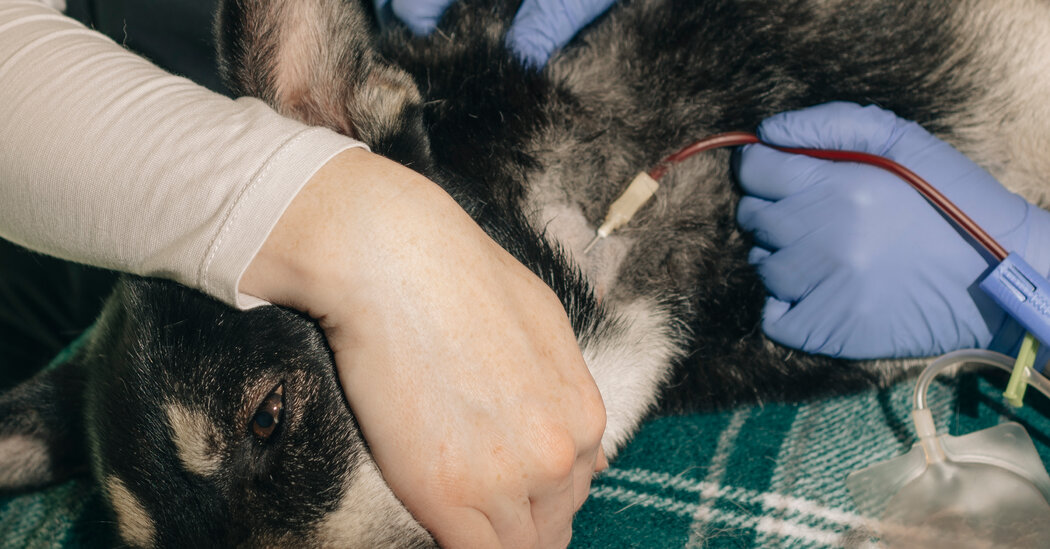
This article is part of our Pets special section on scientists’ growing interest in our animal companions.
At first, it was hard to tell whether something was really wrong with Rover. The 10-year-old yellow Lab had always been a bit of a loafer, so when he refused to get up from the rug last February, it was not entirely out of character. But then he declined a treat.
“That was when we were like, ‘We have a very sick dog on our hands,’” said Hilary O’Hollaren of Portland, Ore.
Ms. O’Hollaren’s husband rushed Rover to DoveLewis Veterinary Emergency and Specialty Hospital, where doctors had grave news: The dog had a tumor on his spleen. Worse, it had ruptured, causing massive internal bleeding. Without a blood transfusion, Rover had just hours to live.
The couple quickly gave their consent, and the transfusion bought enough time for further diagnostic testing. The veterinarians discovered that although Rover had an aggressive form of cancer, which would eventually recur, it had not yet metastasized. So they removed Rover’s spleen and sent him home to live out his final months with his family.
“We’re just really so grateful that there was even the option of having that transfusion,” Ms. O’Hollaren said. “We’re just trying to make every day the best day ever for him.”
All kinds of ailments — including injuries, infectious diseases, immune conditions and cancer — can leave a pet in desperate need of blood, and transfusion has become an increasingly routine part of veterinary care.




